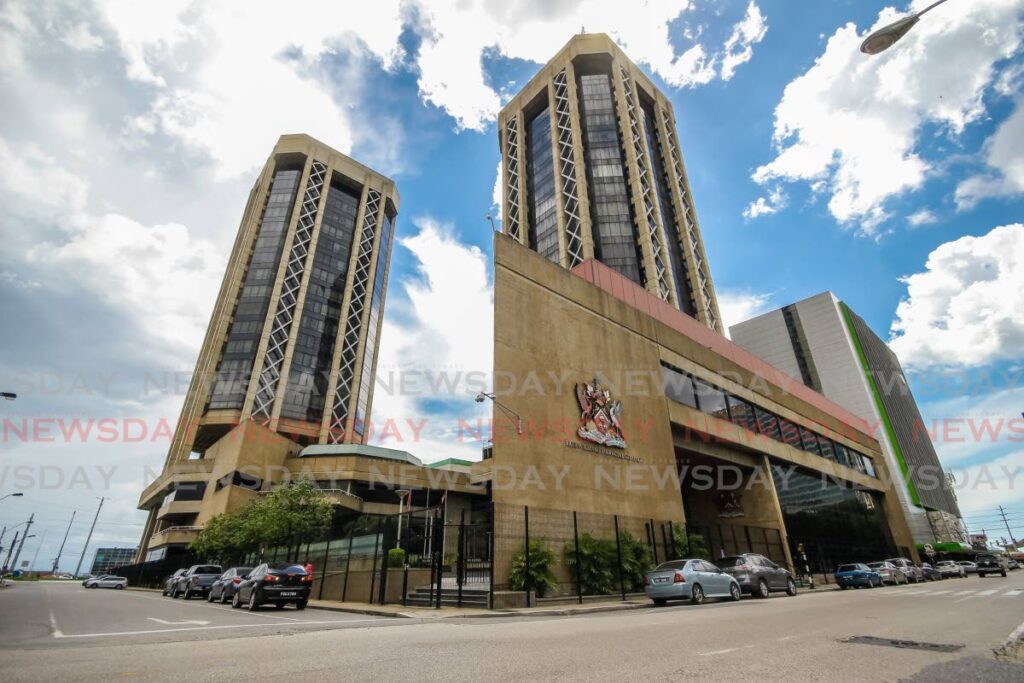Central Bank warns: Trinidad and Tobago can't rely on petrodollar windfall

TRINIDAD and Tobago is benefiting from increased production in oil, gas and petrochemicals and from higher prices for them, but amid global uncertainties must not rely on any such windfall indefinitely, warned the Central Bank in its Monetary Policy Report May 2022, issued on Monday.
"In the very uncertain global setting care must be taken to not consider this ‘windfall’ as permanent, and to continue much needed structural reforms to strengthen TT’s competitiveness, said the report in its key messages."
The bank reiterated the point in its overview and outlook.
"Much-needed structural reforms should also be accelerated to reduce bureaucracy and strengthen TT’s dynamism and attractiveness in tourism, financial and other service markets."
The report's key messages cited positives for TT domestically, but amid negatives globally.
"The global economic recovery is likely to slow in 2022, owing to high food and energy prices on account of the Russian/Ukraine crisis and supply shortages stemming from the covid19 pandemic, which have added to inflationary pressures across many economies.
"Domestically, higher crude oil and petrochemical production spearheaded a return to positive growth in energy sector activity during the fourth quarter of 2021.
"The roll-back of covid19 restrictions boosted business operations in some non-energy sectors while inflation, though rising, remains relatively contained."
"Recent high international energy prices have boosted the public finances and external accounts, creating a welcome space for financing further adjustment to the lingering effects of the pandemic.
The report's overview said the global economy had begun 2022 in recovery mode, but alongside rising inflation.
The war in Ukraine had caused a surge in energy prices and commodity prices and impacted real incomes and consumption globally.
"The war has also resulted in renewed supply shortages, including for wheat, vegetable oils, certain metals, and electronic components."
The report blamed "tremendous volatility in capital markets" on the fact of global stock prices oscillating on news surrounding the war, worry over interest rates, and fear of recession owing to monetary over tightening.
"At the same time, rising covid19 inflections and associated lockdowns in China and elsewhere not only threaten to add to existing supply constraints but provide a sobering indication that the pandemic has not yet run its full course."
All this had a mixed effect locally.
"Domestically, signs of a fairly broad-based economic recovery became more evident during the fourth quarter of 2021."
This included an uptick in energy-sector activity/production in late 2021.
"In addition, the continued roll-back of restrictions on movement led to a gradual resumption in output in many non-energy sector businesses, including distribution, manufacturing and construction."
However, global supply-side factors were stimulating inflation.
"The surge in international prices for food staples such as sugar, wheat and vegetable oils, tighter shipping costs, transportation delays, and adverse weather conditions led to marked increases in food inflation."
Core inflation (excluding food inflation) also rose in TT with the reduced subsidy on gasoline, and domestic consumers feeling the global hikes in costs of construction materials, such as cement.
"Excess liquidity, as measured by commercial banks’ reserves held at the Central Bank in excess of the required levels, declined from $7.7 billion in November 2021 to $3.9 billion in April 2022"
The report noted a rebound in business lending in October 2021, along with a rise in real estate mortgage lending, but said consumer lending has remained stymied.
"Credit conditions allowed for a small reduction in bank’s lending rates, from 7.04 per cent to 6.93 per cent on average between September 2021 and March 2022."
The report's outlook said global economic prospects worsened in early 2022.
Citing global growth of 6.1 per cent last year, it said the IMF had reduced its estimates for this year and next by 0.8 and 0.2 per cent respectively to be 3.6 per cent each year.
This was blamed on fallout from the Ukraine crisis including a major humanitarian crisis in Europe and sanctions on Russia which derailed the previous robust global recovery.
The report expected energy prices to remain high in 2022, while rising fertiliser prices would push up the cost of food.
"The supply-side stimulus to both food and core inflation in TT is anticipated to persist to the end of 2022."
It said re-opening of the economy was boosting non-energy activity including employment opportunities.
"At the same time, job content and the requirement for physical presence on work sites are expected to be permanently affected by the pandemic-induced switch to greater virtual transactions."
Considering a domestic economic revival, the report said the energy sector grew by 4.6 per cent in the fourth quarter of 2021 (year on year), with crude oil production up by 8.8 per cent, natural gas up by 0.9 per cent and petrochemicals up by 11 per cent (although largely due to a base effect upon the post-maintenance restart of the Atlas methanol plant.)
The report said, in January, gas production rose to 2,877 million cubic feet per day, and oil production was stable at 61,678 barrels per day.


Comments
"Central Bank warns: Trinidad and Tobago can't rely on petrodollar windfall"